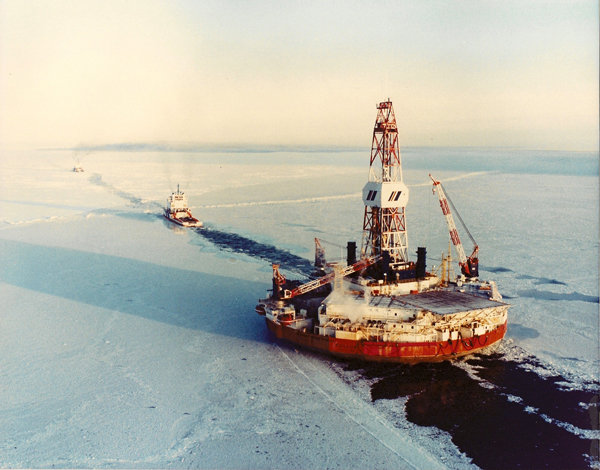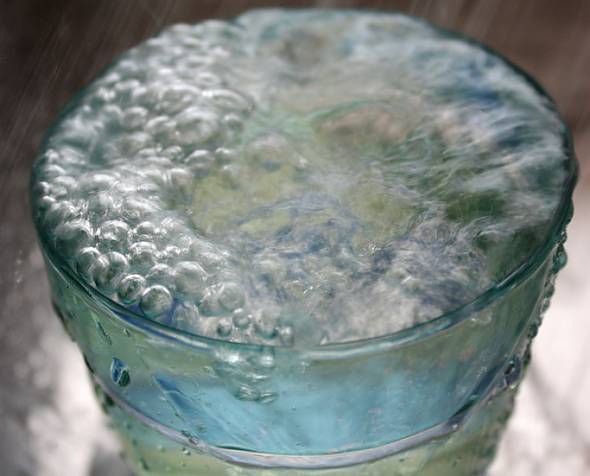Published on Desmogblog, Sunday July 26th, 2015.
By Mike Gaworecki
Shell received the final permits it needed to begin drilling exploratory wells in the Chukchi Sea last Wednesday, but a group of Senators led by Oregon’s Jeff Merkley is calling for a ban on Arctic drilling altogether.
According to the Associated Press, the permits are somewhat conditional: In granting the company the green light, the Department of the Interior said Shell can only drill the top sections of wells, or to about a depth of 1,300 feet, because critical emergency response gear, including a well-capping device in the event of a blowout or leak, will not be present for the foreseeable future.
The capping stack and other emergency gear is on board the MSV Fennica, which is in Portland, Oregon for repairs after Shell opted to send the ship out of Dutch Harbor, Alaska on July 3 via a shallow and evidently treacherous route, choosing speed over safety.
The Fennica is an icebreaker — a ship literally designed to break through ice, one of two such ships in Shell’s Arctic fleet meant to protect its drill rigs from unsafe ice conditions. But the Fennica somehow suffered a gash in its hull more than 3 feet long before even leaving the harbor and was forced to head immediately back to port.
There is no word on how long the repairs will take. When the capping stack is available to be deployed within 24 hours, aDOI spokesperson told the Associated Press, Shell can apply for an amended permit that would allow the company to drill deeper.
That is cold comfort to critics of Shell’s Arctic drilling plans, who have repeatedly pointed out that the remote Arctic waters of the Chukchi Sea, where the company plans to drill, will make cleanup of any spill extremely difficult even if Shell has all of its emergency gear on hand. An oil spill would be devastating, environmentalists argue, but any drilling activities are likely to be incredibly disruptive in the fragile Arctic ecosystem.
“This is obviously a disappointing approval, but at least the Administration made it clear that Shell cannot actually drill for oil until or unless the Fennica, its latest piece of damaged equipment, makes it back from repairs in Portland,” Steve Kretzmann, executive director of Oil Change International, said in a statement.
That view is apparently held by at least a few members of the US Congress. Senator Jeff Merkley (D-OR) introduced the “Stop Arctic Ocean Drilling Act of 2015” last week, legislation co-sponsored by Senators Al Franken (D-MN), Martin Heinrich (D-NM), Ed Markey (D-MA), Bernie Sanders (D-VT) and Sheldon Whitehouse (D-RI). The Senate bill would ban oil and gas leases in the Arctic Ocean, including the Beaufort and Chukchi seas.
Noting that the Arctic is “home to invaluable and fragile ecosystems, which are critical to fisheries, migratory birds, indigenous populations, and subsistence hunters,” the bill would make it the official policy of the United States that the Arctic Ocean “should be managed for the best interests of the people of the United States, including by keeping fossil fuels in the ground to avoid the dangerous impacts of climate change.”
Friends of the Earth climate campaigner Marissa Knodel said that the Obama Administration should “take a lesson in climate leadership from Senator Merkley.”
“The ‘Stop Arctic Ocean Drilling Act’ is exactly what we need to avoid the worst impacts of climate disruption and to protect the people and wildlife that call the Arctic Ocean home,” Knodel said in a statement. “As the bill states, the Arctic Ocean should be managed in the best interests of the American people, which includes keeping fossil fuels in the ground.”


